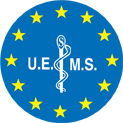
The European Commission has just released the summary report of the replies on the consultation launched at the beginning of 2013 on the development of the the European Reference Networks.
The Directive 2011/24/EU of the European Parliament and of the Council of 9 March 2011 on the application of patients' rights in cross-border healthcare requires the European Commission to support Member States in the development of European Reference Networks composed of healthcare providers and Centres of Expertise.
The expected added value of these European Reference Networks and of the Centres of Expertise is the improvement of access to both diagnosis and high-quality, accessible and cost-effective healthcare for patients who have a medical condition requiring a particular concentration of expertise or resources, particularly in medical domains where expertise is rare. European Reference Networks could also be focal points for medical training and research, information dissemination and evaluation, especially for rare diseases.
In this regard, The European Commission launched a public consultation targeted to stakeholders, on the European Reference Networks (ERN) and in particular on the criteria to be considered according to Article 12 of Directive 2011/24/EU. The objective of the consultation was to seek the views of interested parties on the potential scope of European Reference Networks, and the criteria for healthcare providers wishing to join them. In particular, it sought opinions and contributions based on evaluated experiences, regional or national models, technical and professional standards, criteria or recommendations which could facilitate the definition of technical and quality criteria (scope, general and disease specific elements).
This consultation consisted of an online survey which was open for submission for 12 weeks (23 November 2012 - 22 February 2013).
This report recently released summarises the contributions made by stakeholders, among which the UEMS, on the elements to be addressed in the implementation of Article 12 of the Directive 2011/24/EU on European Reference Networks (ERN), and in particular on the criteria to be considered in the process of identification and designation of healthcare providers as Centres of Expertise.
The key findings of the report are:
The list of proposed criteria related to diseases or conditions to be considered under the scope of the ERN is considered relevant for most respondent:
Need of highly specialised healthcare :Complexity of the diagnosis and treatment; High cost of treatment and resources; Need of advanced/highly specialised medical equipment or infrastructures
Need of particular concentration of expertise and resources: Rare expertise/need of concentration of cases; Low prevalence/incidence/number of cases; Evaluated experiences of Member States
Based on high-quality, accessible and cost-effective healthcare: Evidence of the safety and favourable risk-benefit analysis; Feasibility and evidence of the value and potential positive outcome (clinical)
The proposed general criteria of the centres wishing to join a European Reference Network was also considered as relevant by respondent
- Organisation and management
- Patients' empowerment and centred care
- Patient care, clinical tools and health technology assessment
- Quality, patient safety and evaluation framework policies
- Business continuity, contingency planning and response capacity
- Information systems, technology and e-health tools and applications
- Overall framework and capacity for research and training
- Specific commitment of the management/direction of the centre/hospital to ensure a full and active participation in the ERN
Stakeholders agreed with the proposed fields and elements which could be used for the assessment of a healthcare provider wishing to be selected as a centre of reference for a specific disease or condition.
- Competence, experience and good outcomes and care
- Specific resources and organisation
- Presence and coordination with other required complementary units or services
- Patient care pathways, protocols and clinical guideline in the field of expertise
- External coordination, care management and follow-up of patients
- Research, training, health technology assessment in the field of expertise
- Specific information systems
- Files:
 cons_ern_report_en.pdf 2.1 M
cons_ern_report_en.pdf 2.1 M
